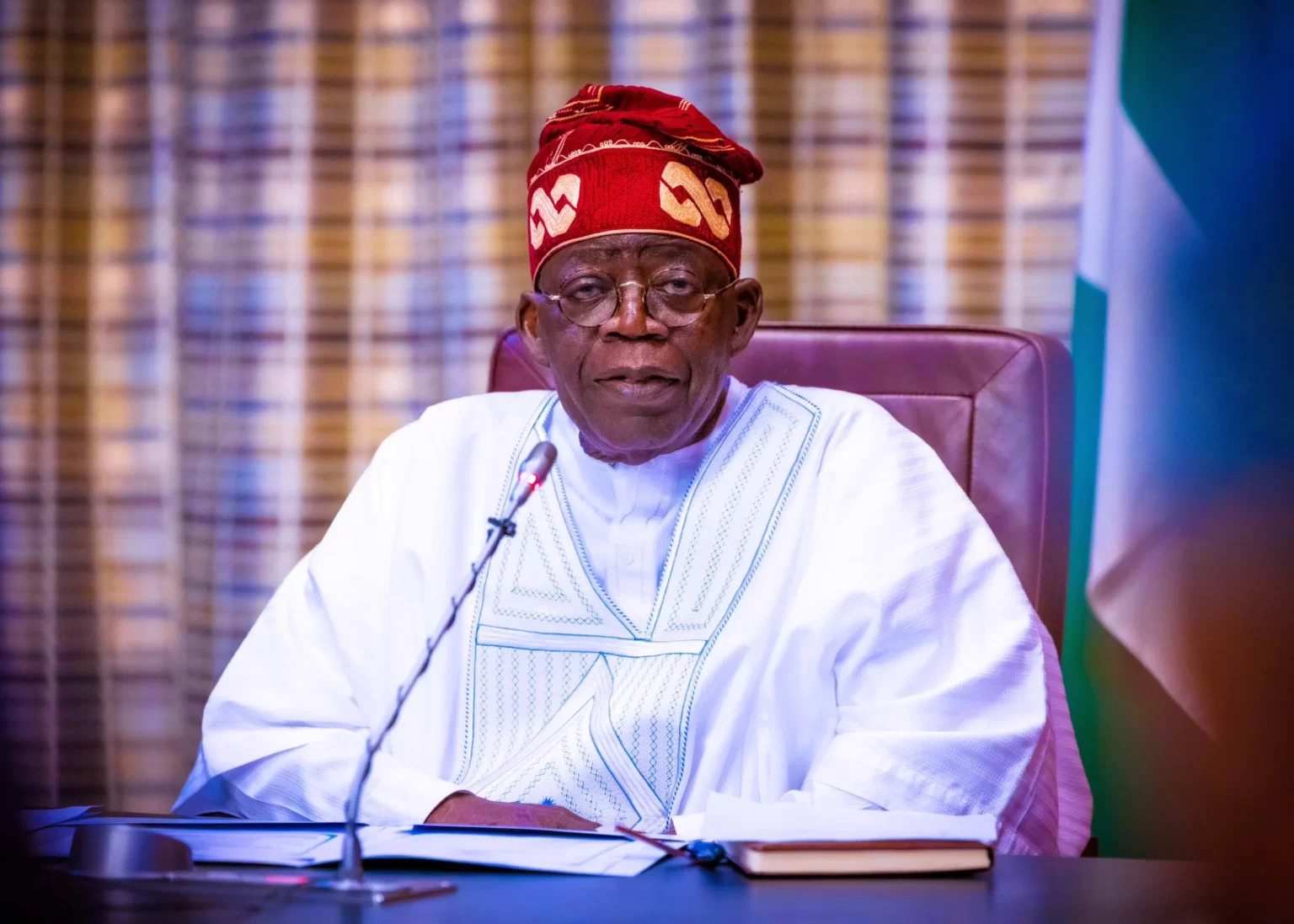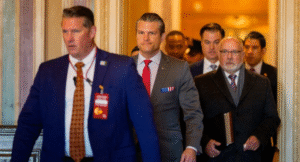
President Bola Ahmed Tinubu has taken a firm stand against the unjust stereotyping of Nigerians as inherently corrupt.
He expressed this view during the Public Engagement on Youth, Religion, and the Fight Against Corruption, organized by the Economic and Financial Crimes Commission, EFCC.
The event, which also marked the launch of an Inter-Faith Manual and Fraud Risk Assessment Project for MDAs, took place in Abuja this Wednesday.
Tinubu, represented by Vice President Kashim Shettima, commended the EFCC for serving as a moral compass and persistently awakening the nation’s conscience.
He went on to stress the unfairness of labeling all Nigerians based on the actions of a few, emphasizing that Nigeria is home to diligent and honest people.
In clear terms, the President rejected the blanket mislabeling that taints the reputation of the majority of Nigerian citizens.
While highlighting the global contributions of Nigerians in significant fields such as Artificial Intelligence and medicine, he emphasized that such gross misrepresentation fails to reflect the true essence of a nation comprised of diverse and resilient people.
He said, “Over the decades, Nigerians have been victims of mislabelling. Such gross misrepresentation fails to reflect the true essence of our diverse and resilient nation. The association of internet crimes with the entire Nigerian populace lacks statistical evidence and does not align with the sociology of everyday Nigerians. Our nation comprises hardworking, honest citizens who contribute significantly to various fields globally, from Artificial Intelligence to medicine.
“While we reject blanket stereotyping that undermines the majority upholding principles of integrity and diligence, we must face the fact that we function in an interconnected world where cybercrimes have evolved into a global phenomenon.”
Understanding the challenges of the digital age, President Tinubu acknowledged the global threat of cybercrimes and assured the EFCC of the government’s unwavering support in their battle against digital offenses.
Transitioning to the proactive measures being taken, President Tinubu highlighted the establishment of a Students Loan Board to support young Nigerians financially, thus discouraging them from engaging in unlawful activities.
Our message to the youth is clear: the horizon is wide, and opportunities abound across various sectors,” he encouraged, urging the youth to take advantage of these lawful prospects and contribute to the nation’s prosperity.
Furthermore, President Tinubu called on religious leaders to serve as pillars of guidance and MDAs to work closely with the EFCC to streamline governance processes and ensure resources are used judiciously for the benefit of all citizens.
CAN President, Archbishop Daniel Okoh, echoed concerns over corruption’s detrimental effects, emphasizing the need for collaborative efforts to reverse the trend.
“Corruption remains one of the major challenges that we have in our country today.
“I would like to urge Government at all levels to strengthen the Justice system in Nigeria to indict and discipline any established act of corruption in order to give strong support to this campaign against corruption in our dear nation,” he said.
The Archbishop reminded everyone that the youth did not create corruption but are being influenced by it.
However, religious leaders, Okoh stressed, must play a crucial role in instilling moral values and guiding the youth towards ethical decisions.
He emphasized the role of religion and moral education in shaping the values of society and urged religious leaders to lead by example.
Sultan of Sokoto, Alhaji Sa’ad Abubakar III, emphasized the importance of appointing officials with unblemished records to combat corruption effectively.
He said, “For any government to effectively combat corruption, the first step lies in the appointment of government officials. Great care must be taken in selecting individuals for these positions in order for the government to succeed.
“These appointees must have no history of criminal activities. If someone with a known history of corruption is appointed and it is believed that they will suddenly change within the span of four years, then there is a fundamental misunderstanding. The appointment of government officials must be treated with the utmost seriousness.
“To the EFCC chairman: you were nominated by the Executive, confirmed by the Senate, and the Judiciary knows what you’re doing. Your intention to seek approval from these three bodies is highly commendable, and they must support you as they are the ones who put you in that position.
“Let them know that you are taking measures to scrutinize accounts and activities. They should understand that you are diligently executing your responsibilities. It is imperative to allow the chairman to carry out his duties as you are the one who appointed him. If you believe that the EFCC chairman is unfit to perform his job simply because he wants to inspect your records, then remove him. This way, people will understand the reason for his removal.”
Ooni of Ife, Oba Adeyeye Enitan Ogunwusi, called for dialogue and structural reforms to address systemic issues and foster societal values.
He urged, “Let us engage in dialogue and change the current structure, following the example set by the chairman of the EFCC, by publicly involving and discussing issues such as youth, religion, and the fight against corruption. We need to thoroughly engage with one another to identify the root of the problem.
“The fundamental issue is that we cannot survive with the current state of affairs in Nigeria. It is simply not possible. Anyone claiming otherwise is not being truthful. Even if we were the most intelligent people in the world, it would still be impossible.
“Therefore, let us work to change the structure of this country and bring governance back to the grassroots. This will enable us to reorient the mindset of everyone and instill the necessary values. By doing so, we can shape the mindset of future leaders and begin grooming them.
“However, if we persist with the status quo, nothing will change; it is a fallacy. On this note, I want to implore each and every one of us. We all have a stake in this country, not only our leaders.
“For every leadership, there is followership. If you are a follower, do what is right and just. If you are elite, do what is just and right. You are a servant; stop amassing wealth. What do you want to use it for? To keep oppressing people? One day they will face you. You don’t pray for that to happen in our country.”
“Ola Olukoyede, EFCC Executive Chairman, highlighted the agency’s commitment to prevention strategies and collaboration with faith-based organizations to combat corruption.
He said, “With all modesty, we have been effective in deploying our enforcement powers in tackling various forms of financial crimes, including grand corruption and cybercrimes. Our conviction profile and record of asset recovery, is unmatched by any other agency. But rather than abate, these crimes appear to have festered, suggesting that a change of approach might be imperative.
“This realization commends a reconsideration of the Commission’s anti-graft strategy with a new focus on prevention in line with the popular dictum that prevention is better than cure. It is also in tandem with the recommendations of the United Nations Convention Against Corruption, UNCAC.
“To our faith leaders, my appeal is that those who lead our society from churches and mosques should develop messages that glorify industry, hard work, probity and contentment over riches, irrespective of how it was made. We all must stand up and be counted in the efforts to reset the mentality of our youths that the fast lane to affluence is fraud.
“A religious sect in this country had been found to be laundering money for terrorists. We were able to trace some laundered money to a religious organisation, and when we approached the religious organisation about it and we were carrying out our investigation, we got a restraining order stopping us from carrying out our investigation.
“Aside from our commitment to using faith to tackle corruption in various levels of society, we have also developed a remarkable tool which we intend to deploy to prevent corruption in our Ministries, Department and Agencies. This tool, a Fraud Risk Assessment Project, which is also being unveiled today, is meant to assist government agencies to address systemic vulnerabilities at the personnel, institutional and environmental levels, and take preemptive measures.”








